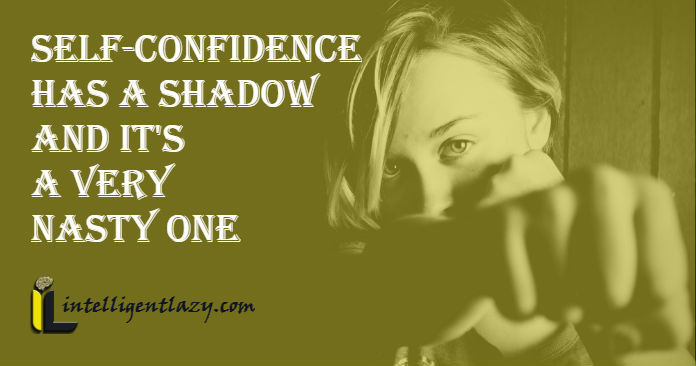(Guest post) Self-confidence is way overrated

This post was sent by Martin May
Martin is a Trainer, Management Consultant, Business Coach and Managing Director, and he’s all about “effective communication skills for people who manage people”, as he puts it. The reason I find his post, and his blog in general, relevant to the content of Qualitative Researcher is that communication skills, self-confidence, self-positioning, etc. is something that is helpful in all aspects of life, regardless of one’s profession. To students, it may obviously be about presenting their work and ideas at the university; for academics and researchers it is, again, about “presenting themselves” in a broad sense – presenting at conferences, networking, trying to convince someone of our ideas, speaking in front of a panel, sitting in a job interview.. In my academic career, I made conscious efforts to work on my self-confidence. I read books, I tried to meditate, I spoke to professional trainers. Let’s see what Martin has to say about self-confidence…
——————————————————————————————————————————————————————-
I often experience a lack of self-confidence. Even now, when I’m writing these words, the mixture of hesitation and anxiety flows overwhelmingly through my body. At this moment I feel like I’m losing it, I can’t get my confidence back. And the best part is that I don’t want to.
What is confidence?
You can trust someone’s judgements, have faith in your own abilities, or be certain about the outcome of a situation. Confidence is a belief that someone or something will turn out the way you think it should. And when this belief is applied to yourself, we call it self-confidence or self-esteem. There’s plenty of tips and tricks, articles and self-help books on how to be more confident. All are devoted to the discovery of the Holy Grail of self-confidence. Some work better than the others but…
But there is a catch
How do I know?
First and foremost, confidence, belief and trust all imply that you do not know. Therefore, trying to work around them is a form of a lie! You aren’t honest enough with yourself to admit that.
Needless to say, if you want to improve your confidence you will have to become a greater liar.
That’s not all

When we’re doing well and everything seems to be falling smoothly into its place, our self-esteem grows. People like us and respect our point of view, and therefore, we feel appreciated. We see the proof of our greatness everywhere around us so we tend to be more courageous, thus we take bolder actions.
In contrast, when we experience failure, rejection and disappointment our confidence drops. We slowly begin to fold in, we shrink, we hide in our shells like the tortoise when they are scared, or their life is at stake. From a lack of self-confidence, we can dive into illness, anxiety and into depression.
All I’m saying is that the confidence has a shadow and it’s a very nasty one.
What about self-confidence?
Believing in yourself also has interesting implications. There needs to be the person that has confidence and another person in whom that confidence is placed. It looks like the beginning of a split personality disorder.
So, are there two of you or is there only one? You need to make up your mind.
There is a solution
First off, if you’re confident that you are more than one person, please see a specialist. But if you know there is only one person and only you, then confidence is no longer going to work. And that pretty good because there is something far greater: clarity.
Clarity is the state when you are free from ambiguity. It means that you can differentiate knowledge from perception, opinions from facts, beliefs from the truth. Put simply, you can effortlessly recognize and see through the bullshit.
Lack of clarity is dangerous
Let’s assume that you are a good driver to the extent that you could actually teach others how to be confident behind the wheel. You’re taking your usual route home but suddenly a dense fog has obscured your visibility and you can only see a few dozen yards ahead. You know this route like the back of your hand, you’ve got the skills so there’s no need to slow down.
You already know how this is going to end, don’t you?

We have seen this in sport, business and politics. Confidence without clarity will make you ignore crucial information and will negatively affect your judgements, causing poor decision making. In addition, it will make you gamble more – and this is not the same as taking calculated risks.
So why are we chasing self-confidence?
Bluntly speaking because we need a substitute. If you can’t get the number one thing you are going for, you go after the second one. As the old proverb goes better a mouse in the pot than no meat at all (or better a bird in the hand than two in the bush), and I completely agree with that. Because it’s better to be full of self-confidence rather than full of self-doubt.
Having said that, I’ve decided to live with some doubts. And it’s a conscious decision.
If you would like to read more about self-confidence, have a look at this article about the four cornerstones of high self-confidence, published by INLP Center.
